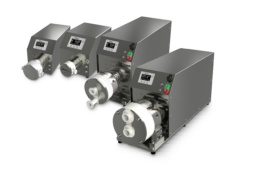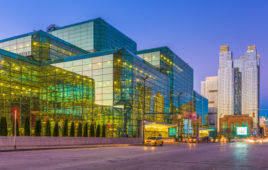
When we think about pharmaceutical manufacturing, there is usually a definition to which we gravitate toward medicines, or the diagnosis, treatment and prevention of diseases. Today, there is a general understanding of the ways pharmaceutical products can be created by the scientific community to treat those with complex medical conditions including cancers, allergies, and bacteriological infections.
Beginning in late 19th century, physiologists began experimenting with inoculation techniques for smallpox vaccines and early ways to grow cells outside a living organism. Over a hundred years later, the industry has compiled an exhausting array of cell lines and vaccines which seek to improve our lives. Our general inclination is to leverage that idea, and perhaps for the greater good of people, into non-medical applications.
Throughout the industrial age, innovators have evaluated the attributes of technological advances in their respective fields and tweaked them to meet their needs. One specific sector in our industry that is being tweaked in an attempt to feed a growing world is Cellular Agriculture, which is the ex vivo production of agricultural products from cell cultures. Some of the products being produced are dairy products such as eggs and milk, meats like beef and chicken, and textile products like leather, fur, and wood. Similarly, we are all seeing the exciting advances in tissue engineering to develop organs (in vivo or ex vivo) for organ transplants and skin grafts.
While examples of utilizing traditional biotechnology to create products such as beer have existed for centuries, much controversy has been awakened globally around the notion of biological design or synthetic biology. Moral and/or religious objections, like concerns about who and how it should be regulated, as well as a general fear of the unknown and what could potentially be created with this technology, are just a few of the dilemmas considered as the world tries to play catch-up with the scientific communities’ advances in biological technology.
The world’s societies are industrializing and growing at a rate of which we will have difficulty providing adequate basic resources such as protein rich food and fresh water. History has laid out our attempt to feed the globe with techniques such as factory farming, which creates their own problems that have come under much scrutiny and controversy over recent decades. Imagine a new industry, in its infancy, which will grow to supplement locally provided food on a scale which could change today’s factory farming industry for the betterment of the globe.
The new Cellular Agriculture industry will grow not in our countryside, but in our cities where the infrastructure and manpower required to develop such facilities may already exist. Vast swaths of land will not be needed. Alternatively, there could be complex industrial buildings with large-scale reactors and the ability to manufacture, package, and ship these new products both locally and globally.
The biopharmaceutical manufacturing industry is uniquely positioned with the knowledge base to develop this industry in the ways it requires, in a clean and safe environment. Once the world overcomes the stigma of creating proteins ex vivo without the need for animal input, the biopharmaceutical industry will be well suited to move from benchtop scale to global scale.
(Source: IPS – Integrated Project Services, LLC)



